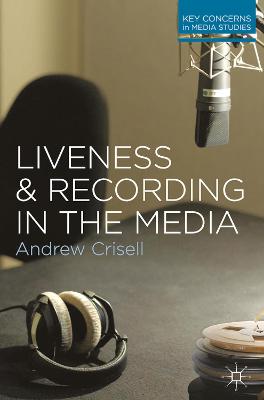Key Concerns in Media Studies
1 total work
We think of radio and television as live media. Yet much of their output is pre-recorded. And if we value liveness so highly, why do we often consume their output some time after it has been broadcast? This book provides some unexpected answers about the meaning of 'liveness' and 'recording', the complexity of their relationship, and their significance not just for television and radio but the popular music which is radio's mainstay.
Written in a clear and lively style, the book sets television and radio in the context of other media and traces the history of liveness and recording. To the relationship between these qualities it ascribes the rise of the serial programmes that characterise so much broadcasting. Citing well-known examples of broadcast output and making extensive use of BBC 1 as a case-study, it supports its arguments by taking illustrations and parallels from theatre, philosophical writing and even poetry.
Written in a clear and lively style, the book sets television and radio in the context of other media and traces the history of liveness and recording. To the relationship between these qualities it ascribes the rise of the serial programmes that characterise so much broadcasting. Citing well-known examples of broadcast output and making extensive use of BBC 1 as a case-study, it supports its arguments by taking illustrations and parallels from theatre, philosophical writing and even poetry.
